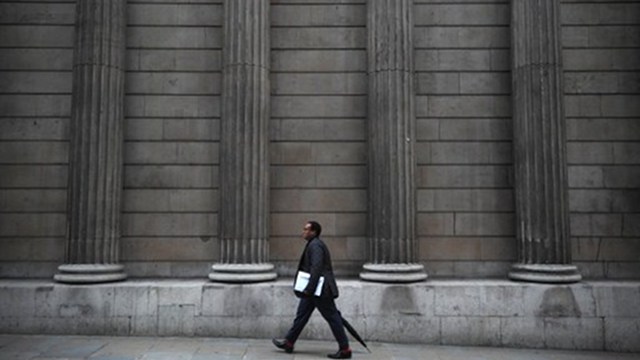SUMMARY
This is AI generated summarization, which may have errors. For context, always refer to the full article.

LONDON, United Kingdom – British bank Barclays is mired in crisis, three top executives have resigned and politicians are furious because of attempted rigging of vital Euribor and Libor inter-bank interest rates.
The crisis blew up one week ago when Barclays was fined £290 million ($452 million, 360 million euros) by British and US regulators for attempted manipulation of the twin markets between 2005 and 2009.
Libor, or the London Interbank Offered Rate, is a flagship instrument used all over the world, affecting what banks, businesses and individuals pay to borrow money.
Euribor, the Euro Interbank Offered Rate, is the eurozone equivalent.
“Barclays attempted to manipulate and made false reports concerning two global benchmark interest rates, Libor and Euribor, on numerous occasions and sometimes on a daily basis over a four-year period, commencing as early as 2005,” the Commodity Futures Trading Commission (CFTC) said in a key report last week.
The US watchdog added that employees at Barclays and its investment bank arm Barclays Capital had sought to boost the bank’s derivatives trading positions to increase profits or minimize losses.
“In addition, the attempts to manipulate included Barclays’ traders asking other banks to assist in manipulating Euribor, as well as Barclays aiding attempts by other banks to manipulate US Dollar Libor and Euribor.”
Barclays had also routinely given low Libor figures throughout the global financial crisis from 2007 until 2009 as it sought to safeguard its reputation and prevent talk of a state bailout.
Bob Diamond, who resigned as Barclays chief executive over the scandal on Tuesday, argued on Wednesday that the bank feared in 2008 that it could face a government bailout like several of its peers in Britain.
The Libor interest rate is calculated each day by the British Bankers’ Association (BBA), an industry body which uses estimates from banks of their own interbank rates.
The Euribor reference rate is set by the Brussels-based European Banking Federation (EBF), which is given estimates from 43 international banks — and the only British contributor is Barclays.
Euribor and Libor affect all manner of trading and contracts around the world and particularly impacts short-term financing. At the same time, until now, they were unheard of by the general public.
The rates are also crucial to the global financial system because they act as a reference or benchmark for the pricing of derivative products which are traded in massive amounts.
A very small difference in either rate, therefore, could determine whether a lender could turn a profit or a loss on big derivatives deals.
The CFTC and Britain’s Financial Services Authority (FSA) released a series of damning emails from Barclays traders to counterparts at other institutions who were seeking help to manipulate markets.
“Certain Barclays euro swaps traders, led at the time by a senior trader, coordinated with and aided and abetted traders at other banks in each other’s attempts to manipulate Euribor,” the CFTC added.
“The traders’ requests were frequently accepted by Barclays’ submitters, who emailed responses such as ‘always happy to help,’ ‘for you, anything,’ or ‘Done, for you big boy,’ resulting in false submissions by Barclays to the BBA and EBF.
“The traders and submitters also engaged in similar conduct on fewer occasions with respect to Yen and Sterling Libor.”
According to the FSA, a minimum of 14 Barclays traders lodged at least 257 such requests over Euribor and Libor submissions made between January 2005 and June 2009.
Britain’s Serious Fraud Office announced Monday that it was considering whether to bring criminal prosecutions over the scandal, while Prime Minister David Cameron has announced a parliamentary inquiry.
Lawmakers are to vote on Thursday on whether to upgrade the parliamentary probe to an independent inquiry led by a judge, similar to that launched after the phone-hacking scandal at Rupert Murdoch’s News of the World. – Agence France-Presse
Add a comment
How does this make you feel?
There are no comments yet. Add your comment to start the conversation.